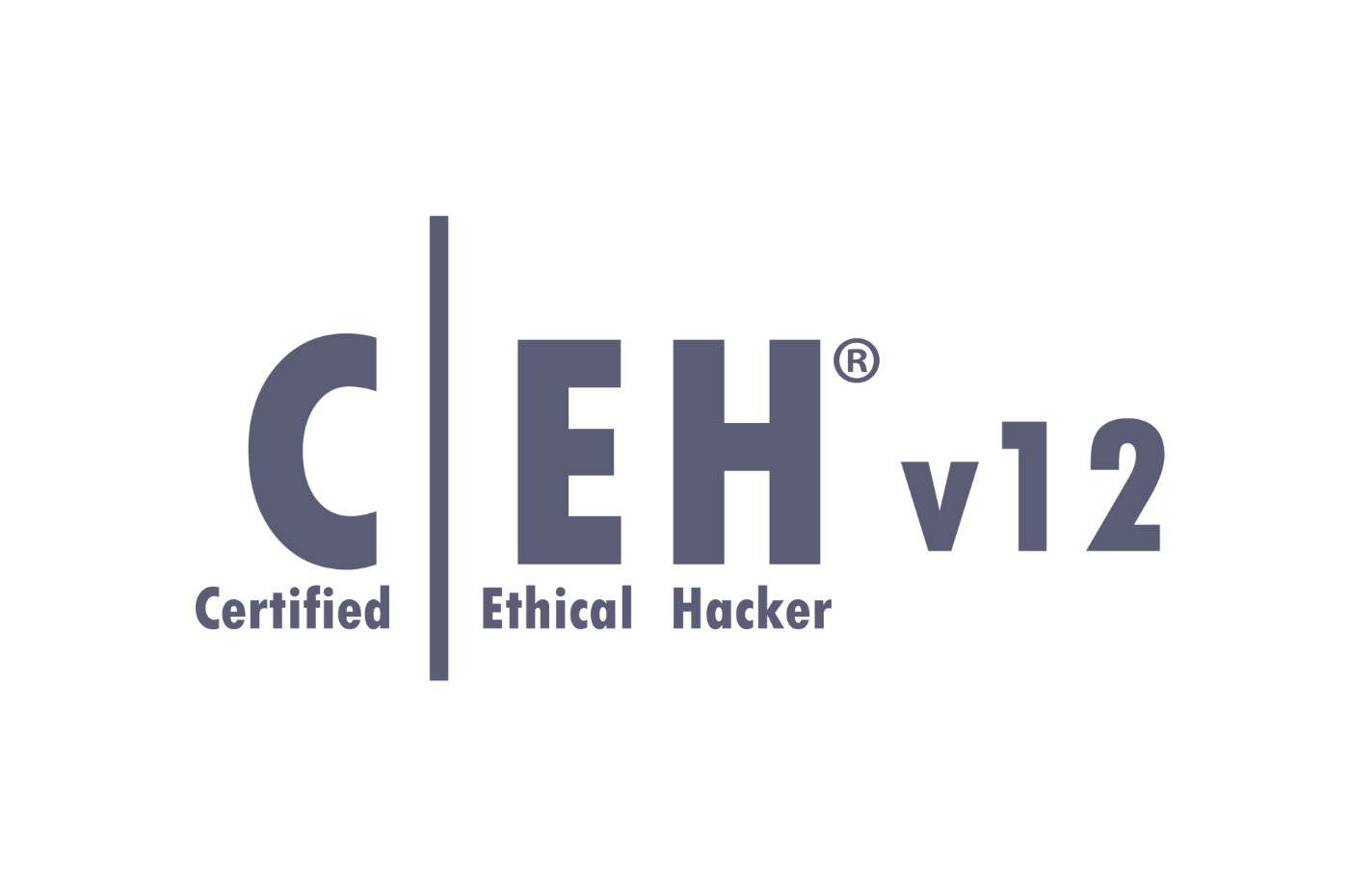Certified Ethical Hacker (CEH) v12 Course
- 40 Hours
The certified ethical hacker course is designed to provide a comprehensive and interactive learning experience, with a focus on hands-on practice and a systematic approach to each aspect of ethical hacking. It covers all domains and methodologies necessary to prepare for the CEH certification exam, and provides the opportunity to demonstrate the knowledge and skills required to pass the exam.

About the course
The Certified Ethical Hacker (CEH) v12 is a certification course and exam offered by the International Council of E-Commerce Consultants (EC-Council). The CEH v12 is designed to provide individuals with the knowledge and skills needed to identify and mitigate security vulnerabilities in computer systems and networks.
The CEH v12 course covers a wide range of topics related to ethical hacking, including footprinting and reconnaissance, scanning and enumeration, social engineering, system hacking, and web application hacking. It also covers the latest tools and techniques used by malicious hackers, such as cloud computing, IoT and AI. The course also focuses on recent laws and regulations, and industry standards that are necessary for a professional hacker to know, as well as various methodologies and frameworks for ethical hacking.
The CEH v12 exam is a four-hour, hands-on practical exam that tests the knowledge and skills of individuals who have completed the CEH v12 course. The exam consists of multiple-choice questions and is designed to assess the individual’s ability to identify and mitigate security vulnerabilities in a real-world environment.
The CEH v12 certification is widely recognized in the industry and is highly sought after by organizations looking to hire individuals with the ability to protect their networks from cyber attacks. The CEH v12 certification is also a pre-requisite for many other professional certifications in the field of cybersecurity.
Overall, the CEH v12 certification is an excellent way for individuals to gain the knowledge and skills needed to identify and mitigate security vulnerabilities in computer systems and networks and become an expert in the field of ethical hacking.
Course Objectives
- Information security controls, laws, and standards.
- Various types of footprinting, footprinting tools, and countermeasures.
- Network scanning techniques and scanning countermeasures
- Enumeration techniques and enumeration countermeasures
- Vulnerability analysis to identify security loopholes in the target organization’s network, communication infrastructure, and end systems.
- System hacking methodology, steganography, steganalysis attacks, and covering tracks to discover system and network vulnerabilities.
- Different types of malware (Trojan, Virus, worms, etc.), system auditing for malware attacks, malware analysis, and countermeasures.
- Packet sniffing techniques to discover network vulnerabilities and countermeasures to defend against sniffing.
- Social engineering techniques and how to identify theft attacks to audit human-level vulnerabilities and social engineering countermeasures.
- DoS/DDoS attack techniques and tools to audit a target and DoS/DDoS countermeasures.
- Session hijacking techniques to discover network-level session management, authentication/authorization, and cryptographic weaknesses and countermeasures.
- Webserver attacks and a comprehensive attack methodology to audit vulnerabilities in webserver infrastructure, and countermeasures.
- Web application attacks, comprehensive web application hacking methodology to audit vulnerabilities in web applications, and countermeasures.
- SQL injection attack techniques, injection detection tools to detect SQL injection attempts, and countermeasures.
- Wireless encryption, wireless hacking methodology, wireless hacking tools, and Wi-Fi security tools.
- Mobile platform attack vector, android vulnerability exploitations, and mobile security guidelines and tools.
- Firewall, IDS and honeypot evasion techniques, evasion tools and techniques to audit a network perimeter for weaknesses, and countermeasures.
- Cloud computing concepts (Container technology, serverless computing), the working of various threats and attacks, and security techniques and tools.
- Penetration testing, security audit, vulnerability assessment, and penetration testing roadmap.
- Threats to IoT and OT platforms and defending IoT and OT devices.
- Cryptography ciphers, Public Key Infrastructure (PKI), cryptography attacks, and cryptanalysis tools.
Course Outline
- MODULE 1 - INTRODUCTION TO ETHICAL HACKING
- MODULE 2 - FOOT-PRINTING AND RECONNAISSANCE
- MODULE 3 - SCANNING NETWORKS
- MODULE 4 - ENUMERATION
- MODULE 5 - VULNERABILITY ANALYSIS
- MODULE 6 - SYSTEM HACKING
- MODULE 7 - MALWARE THREATS
- MODULE 8 - SNIFFING
- MODULE 9 - SOCIAL ENGINEERING
- MODULE 10 - DENIAL-OF-SERVICE
- MODULE 11 - SESSION HIJACKING
- MODULE 12 - EVADING IDS, FIREWALLS, AND HONEYPOTS
- MODULE 13 - HACKING WEB SERVERS
- MODULE 14 - HACKING WEB APPLICATIONS
- MODULE 15 - SQL INJECTION
- MODULE 16 - HACKING WIRELESS NETWORKS
- MODULE 17 - HACKING MOBILE PLATFORMS
- MODULE 18 - IOT AND OT HACKING
- MODULE 19 - CLOUD COMPUTING
- MODULE 20 - CRYPTOGRAPHY
